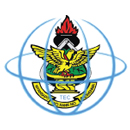Title of Research
Agrivoltaic Technology in Drylands of West Africa: Strengthening National Innovation Systems for Diffusion and Market Development at the Water-Energy-Food Nexus
Principal Investigator / Project Coordinator
Prof Francis Kemausuor (PI), Dr. William Amponsah (Project Coordinator)
Research Team Members and Departments
Prof. Efthymios Nikolopolous, Florida Institute of Technology, USA
Dr. Patricia Oteng-Darko, Crop Research Institute of the Council for Scientific and Industrial Research (CSIR-CRI)
Dr. Joseph Adomako, CSIR-CRI
Dr. Stephen Yeboah, CSIR-CRI
Dr. Kennedy Agyeman, CSIR-CRI
Prof. Wilson Agyei Agyare, Director of WASCAL CCLU programme and the Dean of Students, KNUST
Prof. Lawrence Agbemabiese, University of Delaware, USA
Alhaji Amadu Mahama, the CEO of Hikma Agro Services Ltd in Tamale
Collaborating Institutions or Departments
CSIR-CRI
Hikma Agro Services Ltd
Research Amount/ Grant size
$198,378.00
Funding Agency/Source of funding
United States Agency for International Development (USAID)
Research Duration (Start and End Date)
May 2021 and April 2023
Research Story/ Article
The United States Agency for International Development (USAID) through the Partnerships for Enhanced Engagement in Research (PEER) grants programme under the National Academy of Sciences (NAS) has granted the Kwame Nkrumah University of Science and Technology, Kumasi an award in the amount of $198,378.00 in support of the project entitled “Agrivoltaic Technology in Drylands of West Africa: Strengthening National Innovation Systems for Diffusion and Market Development at the Water-Energy-Food Nexus” under the direction of Principal Investigator (PI) Prof. Francis Kemausuor.
As part of PEER objectives, the project brings together researchers from different local and international institutions, including the United States Government Supported Partner (USGSP), Prof. Efthymios Nikolopolous of the Florida Institute of Technology, USA, and Dr. Patricia Oteng-Darko, Dr. Joseph Adomako, Dr. Stephen Yeboah and Dr. Kennedy Agyeman all from the Crop Research Institute of the Council for Scientific and Industrial Research (CSIR-CRI). The project will also benefit from the support and mentorship of Prof. Wilson Agyei Agyare, the Director of WASCAL CCLU programme and the Dean of Students, KNUST, Prof. Lawrence Agbemabiese of the University of Delaware, USA and Alhaji Mahama, the CEO of Hikma Agro Services Ltd in Tamale.
The PI, Prof. Francis Kemausuor, who is the Director of the Brew-Hammond Energy Center, KNUST, believes this is a great synergistic step towards ensuring renewable energy and food production securities through maximising land use. The project Coordinator, Dr. William Amponsah of the Department of Agricultural and Biosystems Engineering explained that two Tropical Agrivoltaic Research Fields (TARF) will be set up in two agro-climatic regions in Ghana to evaluate the impact of the system on the water-energy-food nexus. In the south (Tropical Forest), TARF will be established on the research fields of CSIR-CRI, Fumesua in Kumasi whereas the field in the north (Tropical Savannah) will be on the farmlands of Hikma Agro Services Ltd in Tamale. The project shall be implemented between May 2021 and April 2023.
Background of the project
Agrivoltaic technology is a novel ecosystem approach of a hybrid co-located agriculture and solar PV infrastructure as a water–energy–food system, where crops are grown in the partial shade of the solar PV installation. The system is expected to: (i) maximize land use by colocating solar energy and agricultural food production on the same land, (ii) maximize crop yields by preventing depression in photosynthesis due to heat and light stress thus allowing for greater carbon uptake for growth and reproduction, (iii) maximize water use efficiency for plant irrigation by decreasing evapotranspiration from soil and crop canopies and (iv) improve solar PV efficiency by lowering the underside temperatures of the panels through cooling from the transpiring understory crops. The introduction of the novel agrivoltaic system in dryland regions is a great step towards renewable energy and food production security in deprived rural areas where farming is the dominant occupation. This research will thus inform solar installation companies and funding agencies in renewable energy technologies, particularly in northern Ghana, to maximise land use by incorporating crop cultivation under large-scale solar PV installations. Large-scale adoption of the system is expected to supply reliable renewable energy to the national electricity grid, as well as improve agricultural productivity and water resource management.
